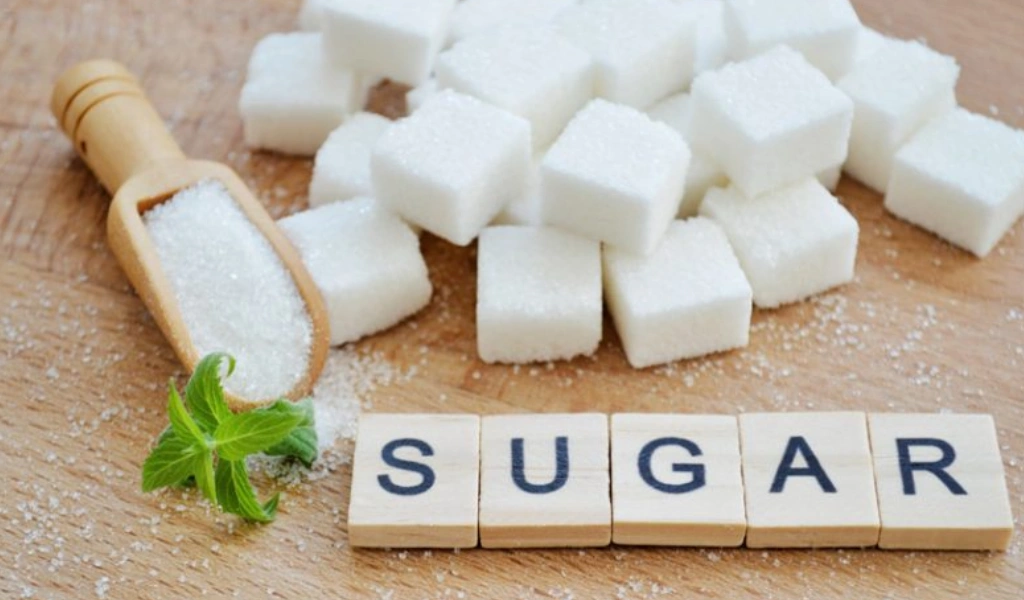Norwegians have a different naming culture compared to other Scandinavian countries, even though they are part of Scandinavia.
Norway has a wide range of surnames that are both special and often linked to nature. This makes Norwegian surnames a great choice for your baby.
In the past, Norwegian surnames had three parts: the first name, the father’s name, and where they were from. But now, Norwegian names mostly have fixed surnames. This change led to some common Norwegian last names ending in ‘-sdatter’ or ‘-sdotter’ and ‘-ssen’ or ‘-sson,’ which mean ‘daughter of’ or ‘son of,’ and have changed over time as they were passed down through families.
In this post, we have put together a list of Norwegian surnames or last names and their meanings to help you choose a unique name for your baby.
Famous Norwegian Surnames or Last Names With Meanings
- Aaberg
This surname means it is the hill next to the river. It is a last name that indicates where someone lived.
- Aaby
This surname comes from a place named ‘Aaby’ or ‘Aby.’ It includes the term ‘a,’ which stands for ‘river,’ and the Old Norse part ‘byr’ which means ‘farm.’
- Aakre
This surname name ‘Akre’ is likely derived from the Old Norse word ‘akr’ which means ‘plowed field.’
- Aamodt
This surname describes a person who resided where two streams come together. This last name comes from the Old Norse word ‘a’ which means ‘river’ and the Norwegian term ‘mote’ which means ‘meeting.’
- Arud
This surname comes from two old Norwegian words: ‘a’ which means stream or river, and ‘rud’ which means clearing.
- Aune
This surname comes from an Old Norse word that means ‘wasteland’.
- Bang
This surname is probably an old Norwegian name meaning ‘terrace’ or ‘flat hill-top.’ The last name refers to people who lived on a farm located on terraced land or a flat hill-top.
- Becken
This surname comes from the Middle English term ‘bekke’ or Old Norse ‘bekkr,’ which both mean ‘stream.’
- Calland
The surname in Norway comes from several farmsteads with that name. It originated from the Old Norse term ‘Kalfaland,’ made up of ‘kalfr’ for ‘calf’ and ‘land’ for ‘land.’
- Dahl
Roald Dahl, the author famous for books like ‘Matilda’ and ‘The Wonderful Story of Henry Sugar,’ has a name that traces back to the Old Norse word ‘Dalr,’ meaning ‘valley.’
- Dale
The surname Dale has its origins in Old Norse, specifically the word ‘dalr’ which means a valley. This last name was given to people who lived in a farm or place located in a valley.
- Dammen
This surname probably originates from a place called Drammen in southeastern Norway. The name is derived from the Norwegian word ‘dam,’ which means ‘pond.’
- Dybdahl
This particular surname comes from various places in Norway and Denmark with this name. It translates to ‘deep valley’ in Norwegian.
- Ege
This surname comes from the Old Norse word ‘eiki,’ which means ‘oak grove.’
- Elden
This surname comes from the Old Norse word ‘eldr’ which means ‘fire’ or ‘flame.’ It is a name based on the name of a river or place.
- Elstad
This surname is called a toponymic name because it comes from the names of multiple places with the same name. It is created by combining the male name ‘Eilifr’ or the female name ‘Eldfridr’ with the Old Norse word ‘stadr’ which means ‘farmstead’.
- Enberg
This surname comes from the Old Norse words ‘einir’ which means ‘juniper’ and ‘berg’ which means ‘hill’ or ‘mountain.’
- Fadness
This surname originates from a place in Hordaland county in Norway. It includes the Norwegian words ‘ferga’ which means ‘to ferry’ and ‘nes’ which means ‘headland’.
- Falla
This surname comes from the Norwegian word ‘fall’ which means ‘fall’.
- Fehn
This surname originates from a location in Norway called Fehn. This last name probably comes from the Old Norse term ‘Favin,’ with the initial part ‘vin’ referring to a ‘meadow.’
- Fiske
The surname comes from Old Norse words that mean ‘fish’ and ‘meadow.’ It refers to a person who comes from a farm with that name or could be a name for someone who works as a fisherman.
- Flaa
This surname comes from the Old Norse words ‘fla’ which means ‘plain’ or ‘terrace.’ This name is a type of name that denotes someone who lived on a farm with that name.
- Fure
In Norwegian, this surname means ‘pine’ or ‘fir’ and is used to describe someone who lived near a farm with that name.
- Gaarder
This surname is based on the name of various places in Norway. It comes from the word ‘Garder’, which originated from the Old Norse word ‘gard’ meaning ‘farm’.
- Gill
The origin of the surname ‘Gill’ is from Norwegian farmstead names. The last name ‘Gill’ is derived from the Old Norse word ‘Gil,’ which means ‘ravine.’
- Granberg
The last name ‘Granberg’ comes from Old Norse words meaning ‘spruce’ and ‘hill’ or ‘mountain.’
- Greseth
This surname originates from the names of some farms in Norway. The name comes from the Old Norse words ‘grjot,’ which means ‘stone,’ and ‘setr,’ which means ‘farmstead.’
- Grimsrud
This last name comes from a Scandinavian first name meaning ‘man with a helmet or mask’ and ‘field.’
- Grinde
The surname is derived from a place in Norway and is based on the Old Norse word for ‘gate’. It is a toponymic name for an individual from that specific village.
- Gronlund
This surname means ‘green’ and ‘lund’ means ‘grove’ in Norwegian, hence the combination of the two created the term.
- Groven
This surname originates from the Old Norse word ‘grof,’ which means ‘hollow’ or ‘pit.’ It is probably a last name given to someone who lived on a farm with that name.
- Gulseth
The surname Gulseth comes from the ancient Norse name ‘Guli’, which refers to a ‘farmstead’. It is also the name of a neighborhood in Skien, a city in Norway.
- Hagen
The surname comes from either the Old Norse word ‘Hagi’ or the Old Dutch word ‘Hago,’ which both mean ‘pasture’ or ‘enclosure.’
- Hall
People who lived or worked in a medieval noble’s house or manor adopted this surname.
- Haugen
The surname originates from the Old Norse word ‘haugr,’ which means a hill.
- Horn
This surname comes from the Germanic term ‘horn,’ which means a ‘horn.’
- Hove
The surname originates from Old Norse and means a place of worship. It was commonly used as the name for farmsteads.
- Hoye
This surname comes from an Old Norse word meaning ‘mound’ or ‘hill.’ It was probably used by people who lived on farms with that name.
- Ihle
This last name comes from the word ‘ila’ in Old Norse, which means ‘spring’ or ‘well.’
- Island
The origin of the surname is unclear, but it is thought to come from combining the Norwegian words for ‘ice’ and ‘land.’
- Jahr
The surname ‘Jar’ comes from a place in Norway. It is based on an Old Norse word ‘jadarr’ which means ‘rim’ or ‘edge.’
- Jordahl
This last name comes from the Old Norse words ‘Hjo’ which means ‘the sparkling river’ and ‘dalr’ which means ‘valley.’
- Kalberg
The surname comes from the Norwegian words ‘kald’ meaning ‘cold’ and ‘berg’ meaning ‘mountain.’
- Kampen
The surname Kampen is used to describe someone from the city of Kampen in Norway. It comes from the Norwegian word ‘kamp’ which means ‘boulder’ or ’round.’
- Kile
This last name comes from an Old Norse term ‘kill’ which means ‘wedge’ or ‘narrow bay’ or ‘inlet.’
- Kise
The surname comes from the Old Norse word ‘Kisi’ which means ‘gravel.’
- Kjos
This surname comes from Old Norse and means ‘narrow valley’ or ‘narrow bay.’ It is also the name of a place in Norway, making it a toponym.
- Klepp
The surname Klepp comes from the Old Norse word ‘kleppr,’ which means ‘cliff’ or ‘bluff.’ It is used to describe multiple places in Norway.
- Kleve
A place name rooted in the Old Norse term ‘kleif’ which translates to ‘cliff’.’
- Kolden
The surname comes from Old Norse and means a rounded mountain top. It is also the name of a location in Norway.
- Korsmo
The surname comes from two Old Norwegian words, ‘korz’ which means crossroads, and ‘mo’ which means sandy meadow. It is also the name of a location in Norway.
- Kvam
The surname comes from the Old Norse term ‘hvammr’ which means ‘small valley.’
- Landvik
The surname comes from a town in Norway and is based on the Norwegian word which means ‘land inlet.’
- Losnedahl
The surname comes from two Norwegian words, ‘Losna’ which is the name of some places in Norway, and ‘dahl’ which means ‘valley.’
- Lund
The surname comes from the Old Norse word ‘lundr,’ which translates to ‘grove.’
- Manger
This surname indicates that someone is from a location in Norway called Manger. The name comes from Old Norse words ‘mar’ which means ‘seagull’ and ‘angr’ which means ‘fiord or an inlet’.
- Malmin
The surname is derived from Old Norse words, with ‘malmr’ meaning ‘sand’ or ‘gravel’ and ‘heimr’ meaning ‘farmstead’ or ‘homestead.’
- Morken
This surname comes from the Old Norse term ‘mork’ which means ‘wood.’ This is a name of places based on their location.
- Nass
The surname originates from an ancient Norse term ‘nos,’ which means ‘nose,’ and is used to describe a landscape feature that resembles a nose.
- Narum
This last name comes from the Old Norse words ‘nor’ which means ‘narrow passage’ and ‘heimr’ which means ‘home.’
- Nerby
The surname comes from various places in Norway and is based on an old Norse word meaning ‘the lowest farm.’
- Ness
This last name comes from the Norwegian word ‘nes’, which means ‘headland’. The surname indicates that the person lived at a headland or promontory.
- Odden
Several farmsteads in Norway are called Oddi, which comes from the Old Norse word ‘oddi’ that means ‘headland.’
- Okland
The surname comes from the places Okland or Aukland. It combines the Norwegian words ‘auka’ (meaning ‘increased’) and ‘land’ (meaning ‘land’).
- Omdahl
Several farms in Norway have the name ‘Almdalr,’ which comes from an Old Norse term meaning ‘elm valley.’
- Ottum
This surname originates from Old Norse and translates to ‘to frighten.’ It is believed that the name is based on a place name.
- Oyen
The last name comes from the Norwegian word ‘oy’ which means ‘island.’
- Pollen
The surname derives from the Old Norse root word ‘pollr’ which means ‘pond’ or ‘small bay’.
- Ranum
It is a different version of the last names ‘Ranheimr’ or ‘Randheimr’. These names come from the Norwegian words ‘rani’ which means ‘nose’ and ‘heimr’ which means ‘home’.’
- Rike
Several farmsteads in Norway are known by the name ‘Riki,’ which comes from the Old Norse word meaning ‘rule’ or ‘power.’
- Rinde
This last name refers to ancestors who came from farms with the word ‘rind’ in it, which means ‘ridge’ or ‘bank’ in Norwegian.
- Rosdahl
This is the name of a farm, which comes from the Old Norse words ‘rud’ (clearing) and ‘dahl’ (valley).
- Selland
Several farms in Norway are named Seljaland, which comes from the Old Norse words for ‘willow’ and ‘farm’ or ‘land’.
- Skagen
The name originates from an Old Norse word ‘skagi’ which means ‘headland.’ It is a name based on a person who lived at a farm on a headland or promontory.
- Skjeggestad
The name is a toponymic name that comes from a place in Norway with the same name. It is a mix of the Norwegian words ‘skjegg’ (beard) and ‘stad’ (place or town).
- Solberg
This is the name of a place that comes from the Old Norse words for ‘sun’ and ‘mountain.’
- Stenberg
The surname comes from Scandinavia and combines the words ‘sten’ for ‘stone’ and ‘berg’ for ‘mountain.’
- Stien
There are multiple farmsteads in Norway with the name Stig. The last name comes from the Norwegian word ‘stig’ which means a ‘trail’ or ‘path.’
- Storstrand
The surname ‘Storstrand’ comes from the Norwegian words for ‘big’ and ‘beach.’ It is a name that refers to someone from one of the farmsteads with this name in Norway.
- Sund
Several farmsteads in Norway are named after the Old Norse word ‘sund’ which means ‘strait.’
- Tanberg
This surname originates from farms in eastern Norway. It comes from the Old Norse words for ‘thorn bush’ and ‘mountain.’
- Tanck
It is a condensed version of the German name ‘Thankmar’ and probably translates to ‘well-known for his energy.’
- Tande
The surname ‘Tandar’ originally came from farms in Norway that shared the same name. It originated from the Old Norse word ‘tonn’ which translates to ‘tooth.’
- Teig
This surname means someone who is from an area in Norway with this name. The name comes from an Old Norse word that means ‘strip of land.’
- Tenold
The surname comes from the Old Norse words ‘tun’ meaning ‘enclosure’ and ‘hvall’ meaning a ‘small hill’ or ‘rise.’ It is a toponymic name and is used for a few farmsteads in Norway.
- Ulberg
Ulberg is a name or term that may not be easily understandable to most people. The family got their name from Old Norse words meaning ‘wolf’ and ‘mountain.’
- Ulven
It can mean several different areas called Ulven in Norway. This surname comes from Old Norse words that mean ‘wolf,’ ‘gravel,’ and ‘meadow.’
- Ure
This surname comes from a location in Hordaland county, Norway. It is derived from the Old Norse words for ‘rocky slope’ and ‘meadow’.
- Urness
This last name comes from the Old Norse words ‘urd’ which means ‘scree’ and ‘nes’ which means ‘headland.’ It is a name that refers to someone from that area.
- Valen
The origin of the surname is from Old Norse, specifically ‘vadill,’ which means a shallow body of water called a ford. This name was used for people who lived in areas with the same name in Norway.
- Valle
The surname has its origins in Old Norse and means ‘field’ or ‘meadow.’ It is used to describe someone who comes from one of the places in Norway with this name.
- Velde
The surname comes from the Old Norse word ‘vollr’ which means meadow or field. People started using the name as a way to identify the place they lived in.
- Velten
Velten is a German town located in the state of Brandenburg. It pertains to one of multiple farms in Hedmark county, Norway. The name is derived from the Norwegian term ‘Velte’ which means ‘log pile.’
- Vik
This surname originates from the ancient Norse language and refers to a small bay or water inlet. The name is based on a location and describes someone who came from one of the farms with the same name in Sweden or Norway.
- Waag
The surname comes from the Old Norse word ‘vagr,’ which means a creek or a bay.
- Wahl
The surname originates from various farmsteads in Norway. This name is derived from an Old Norse word ‘vadill’ which means shallow water or a crossing in a river.
- Wang
The surname ‘wang’ or ‘vangr’ comes from Old High German and Old Norse, meaning ‘meadow’ or ‘grassy slope.’
- Watland
This last name comes from the Old Norse term ‘Vazland’, which means water and land. It is used for various farms with this name in Norway.
- Westby
Several farms in Norway are called Vestbyr. The name comes from the Old Norse words ‘vestr’ meaning ‘west’ and ‘byr’ meaning ‘settlement.’
- Westrum
This surname comes from the Old Norse language, with ‘vestr’ meaning ‘west’ and ‘heimr’ meaning ‘homestead.’
Frequently Asked Questions
Choosing a name for their baby is a big moment for parents that gets them really excited. With so many options to pick from, a lot of parents find it hard to decide on both a first name and a last name. If you like different traditions, you might want to consider Norwegian last names, which are special and give a cool look at the country’s culture and geography. We’ve put together a long list of Norwegian last names to help make it easier for you to pick the right one. These names have meaning and could really add to your child’s personality.






